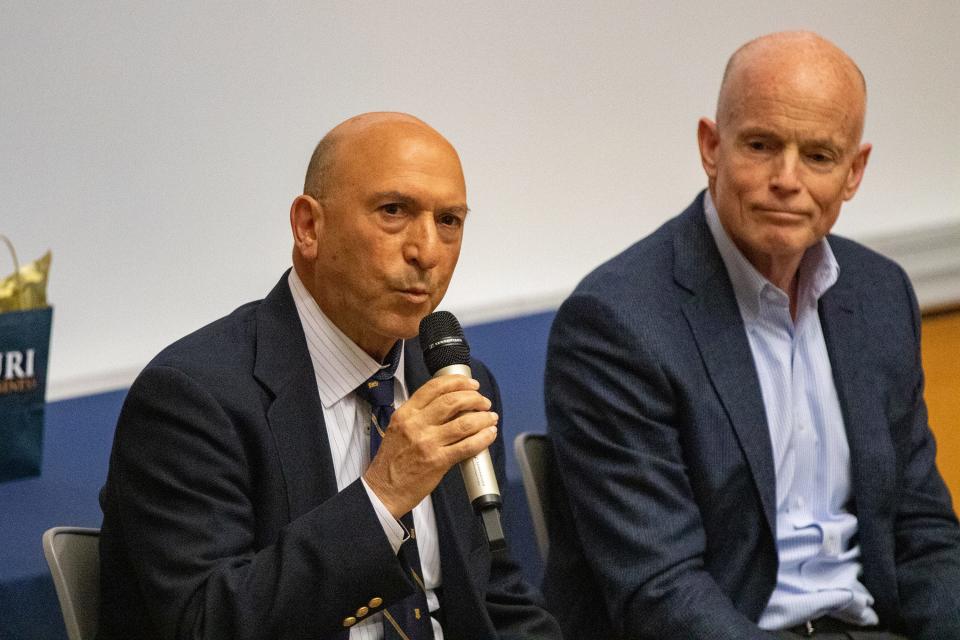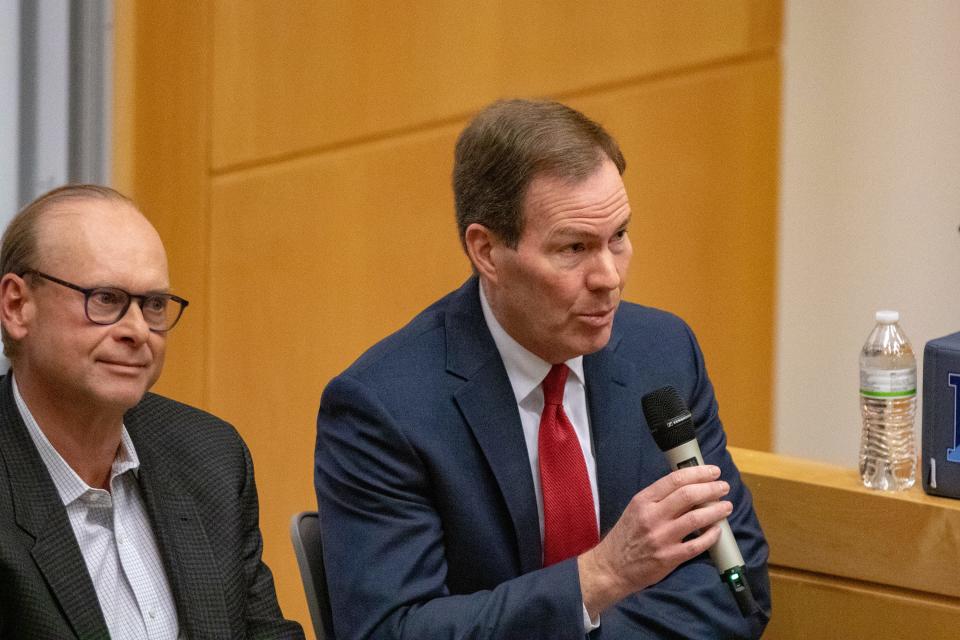These big RI companies went remote in the pandemic. What do they think about the future of work?
SOUTH KINGSTOWN − What happened at five of the biggest companies in Rhode Island when their corporate teams went home to work remotely during the pandemic?
The world kept turning and productivity held steady, but for many employees – and their employers – the future of the office changed permanently.
That was just one of topics discussed at the University of Rhode Island's symposium on April 1 with the chief financial officers of Ocean State Job Lot, Textron, Gilbane, Washington Trust and Amica Mutual Insurance.
At Ocean State Job Lot, the non-public facing workforce went from fully remote to hybrid coming out of the pandemic, with two days a week in the office, and then three.

"I think ownership would love to have five days a week," said Job Lot Chief Financial Officer John Conforti.
At Washington Trust, there was no drop in productivity after the shift to remote work, although something was lost without those "spontaneous interactions" that come naturally from so many people working in one place, said Washington Trust Chief Financial Officer Ronald Ohsberg.
"There's nothing like being able to walk into the office and walk through a problem," Ohsberg said.

At Amica Mutual Insurance, it's a hybrid situation: three days a week in office, two days remote – except the information technology department, which is fully remote. However, the company is willing to hire people now to work fully remotely.
"We've been able to hire people nationally for the home office because some work is fully remote, and it opens up the talent pool," said Amica Chief Financial Officer James Loring Jr.
There is also a generational divide in who wants to work remotely versus who is more amenable to going into the office, with those in the middle of their careers, often with families, seeking the most remote time, while younger workers, many with little or no in-office experience, are looking to go in more often, the group said.
How big is the current talent pool?
Some companies are starkly limited in the number of remote jobs they can accommodate: At Gilbane, a Providence construction company, for example, Chief Financial Officer Robert Murray said the cost of living in the Northeast is so high that it makes it hard to attract talent from outside the region.
More: These publicly traded companies are based in RI. Here's how they're doing on the stock market.
Where are all the cranes?
By one measure of economic activity as the pandemic fades, Rhode Island is in the doldrums: Murray said he can count the number of cranes operating in the state on one hand. It's not like that across the nation.
"In Florida, it's crazy," Murray said.
In other parts of the country – the Midwest, much of the Southeast, particularly Atlanta, and even in California – construction is booming, he said.
Thanks to our subscribers, who help make this coverage possible. If you are not a subscriber, please consider supporting quality local journalism with a Providence Journal subscription. Here's our latest offer.
Reach reporter Wheeler Cowperthwaite at wcowperthwaite@providencejournal.com or follow him on Twitter @WheelerReporter.
This article originally appeared on The Providence Journal: RI's biggest companies talk remote and hybrid work in Rhode Island
